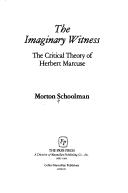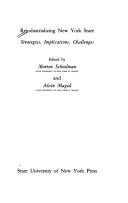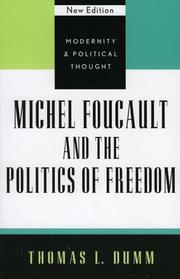| Listing 1 - 7 of 7 |
Sort by
|

ISBN: 0029280400 Year: 1980 Publisher: New York (N.Y.): Free Press
Abstract | Keywords | Export | Availability | Bookmark
 Loading...
Loading...Choose an application
- Reference Manager
- EndNote
- RefWorks (Direct export to RefWorks)
Civilization, Modern --- Critical theory --- Political science --- Social sciences --- -#SBIB:321H60 --- Behavioral sciences --- Human sciences --- Sciences, Social --- Social science --- Social studies --- Civilization --- Administration --- Civil government --- Commonwealth, The --- Government --- Political theory --- Political thought --- Politics --- Science, Political --- State, The --- Critical social theory --- Critical theory (Philosophy) --- Critical theory (Sociology) --- Negative philosophy --- Criticism (Philosophy) --- Philosophy, Modern --- Rationalism --- Sociology --- Frankfurt school of sociology --- Socialism --- Modern civilization --- Modernity --- Renaissance --- Philosophy --- Westerse politieke en sociale theorieën vanaf de 19e eeuw: socialisme, marxisme, communisme, anarchisme --- History --- Marcuse, Herbert --- -Bibliography --- Critical theory. --- Political science. --- Civilization, Modern. --- Filosofie --- Philosophy. --- Marcuse, Herbert, --- Bibliography. --- Filosofie. --- -Administration --- Social philosophy --- Social theory --- Markouze, Chermpert, --- Markuze, Herbert, --- Ma-erh-kʻu-sai, --- Mārkiyūz, Hirbirt, --- מרקוזה, הרברט --- ماركيوز، هربرت،
Book
ISBN: 081477833X Year: 1984 Publisher: New York (N.Y.): University press
Abstract | Keywords | Export | Availability | Bookmark
 Loading...
Loading...Choose an application
- Reference Manager
- EndNote
- RefWorks (Direct export to RefWorks)
Periodical
Year: 1994 Publisher: Thousand Oaks London New Delhi Sage
Abstract | Keywords | Export | Availability | Bookmark
 Loading...
Loading...Choose an application
- Reference Manager
- EndNote
- RefWorks (Direct export to RefWorks)

ISBN: 0585092389 9780585092386 088706177X 9780887061776 0887061788 9780887061783 1438419082 Year: 1986 Publisher: Albany : State University of New York Press,
Abstract | Keywords | Export | Availability | Bookmark
 Loading...
Loading...Choose an application
- Reference Manager
- EndNote
- RefWorks (Direct export to RefWorks)
Industrial policy --- Industries --- Industrialization --- Industrial development --- Economic development --- Economic policy --- Deindustrialization --- Business --- Industry and state --- Government policy --- New York (State) --- Economic policy.

ISBN: 0742521397 0742521389 9780742521384 9780742521391 0803938659 9780803938656 Year: 2002 Publisher: Totowa Rowman & Littlefield
Abstract | Keywords | Export | Availability | Bookmark
 Loading...
Loading...Choose an application
- Reference Manager
- EndNote
- RefWorks (Direct export to RefWorks)
Liberty. --- Civil liberty --- Emancipation --- Freedom --- Liberation --- Personal liberty --- Democracy --- Natural law --- Political science --- Equality --- Libertarianism --- Social control --- Foucault, Michel --- Fūkūh, Mīshīl, --- Foucault, Michael, --- Fuko, Mišel, --- Pʻukʻo, --- Pʻukʻo, Misyel, --- Phoukō, Misel, --- Fuke --- 福柯 --- Fuḳo, Mishel, --- Political science. --- Foucault, Michel, --- Contributions in political science. --- Liberty
Digital
ISBN: 9781478009054 Year: 2020 Publisher: Durham Duke University Press
Abstract | Keywords | Export | Availability | Bookmark
 Loading...
Loading...Choose an application
- Reference Manager
- EndNote
- RefWorks (Direct export to RefWorks)
In A Democratic Enlightenment Morton Schoolman proposes aesthetic education through film as a way to redress the political violence inflicted on difference that society constructs as its racialized, gendered, Semitic, and sexualized other. Drawing on Voltaire, Diderot, and Schiller, Schoolman reconstructs the genealogical history of what he calls the reconciliation image—a visual model of a democratic ideal of reconciliation he then theorizes through Whitman's prose and poetry and Adorno's aesthetic theory. Analyzing The Help (2011) and Gentleman's Agreement (1947), Schoolman shows how film produces a more advanced image of reconciliation than those originally created by modernist artworks. Each film depicts violence toward racial and ethnic difference while also displaying a reconciliation image that aesthetically educates the public about how the violence of constructing difference as otherness can be overcome. Mounting a democratic enlightenment, the reconciliation image in film illuminates a possible politics for challenging the rise of nationalism's violence toward differences in all their diversity.
Digital
ISBN: 9780822389149 Year: 2008 Publisher: Durham Duke University Press
Abstract | Keywords | Export | Availability | Bookmark
 Loading...
Loading...Choose an application
- Reference Manager
- EndNote
- RefWorks (Direct export to RefWorks)
William Connolly, one of the best-known and most important political theorists writing today, is a principal architect of the “new pluralism.” In this volume, leading thinkers in contemporary political theory and international relations provide a comprehensive investigation of the new pluralism, Connolly’s contributions to it, and its influence on the fields of political theory and international relations. Together they trace the evolution of Connolly’s ideas, illuminating his challenges to the “old,” conventional pluralist theory that dominated American and British political science and sociology in the second half of the twentieth century. The contributors show how Connolly has continually revised his ideas about pluralism to take into account radical changes in global politics, incorporate new theories of cognition, and reflect on the centrality of religion in political conflict. They engage his arguments for an agonistic democracy in which all fundamentalisms become the objects of politicization, so that differences are not just tolerated but are productive of debate and the creative source of a politics of becoming. They also explore the implications of his work, often challenging his views to widen the reach of even his most recently developed theories. Connolly’s new pluralism will provoke all citizens who refuse to subordinate their thinking to the regimes in which they reside, to religious authorities tied to the state, or to corporate interests tied to either. The New Pluralism concludes with an interview with Connolly in which he reflects on the evolution of his ideas and expands on his current work.
| Listing 1 - 7 of 7 |
Sort by
|

 Search
Search Feedback
Feedback About UniCat
About UniCat  Help
Help News
News